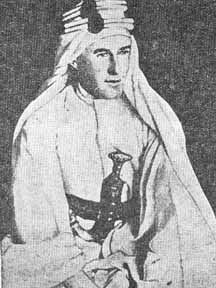|
|
The Arabs, like the
Armenians, rebelled.
The Arabs, like the Armenians, were said to be suffering under the
"Turkish yoke."
|
|
|
| Arabs under Ottoman rule |
His Eminence Haji Amin Effendi El Husseini, on behalf of the Arab Higher Committee for
Palestine, testified on the 12th of January, 1937, before the Palestine Royal Commission
sent by the British Mandatory Power. He explained the position of the Arabs under the
Ottoman rule as follows:
"Under the Ottoman Regime the Arabs formed an important part of the structure of the
Ottoman Empire. It is wrong to say that the Arabs were under the yoke of the Turks and
that their uprising and the assistance which was rendered to them during the Great War
were merely intended to relieve them from such yoke. The fact is that under the
Ottoman Constitution they enjoyed all rights and privileges, political or otherwise, on an
equal basis with the Turks, as the Ottoman Constitution provided for one form of
government of all Ottoman territories and elements. The Arabs had a complete share with
the Turks in all organs of the State, civil as well as military. There were Arabs who held
the high office of Prime Minister and Ministers, Commanders of Divisions and
Ambassadors....There were Arab ambassadors, provincial and district governors. There was
also a large number of Arab Deputies in both Houses of the Ottoman Parliament, in
proportion to their numbers as prescribed under the Ottoman Constitution....There were two
Parliaments, two Constitutions. One was made in the early days of the reign of Sultan
Abdul Hamid, in 1876, and the other was made after the grant of the Constitution in 1908.
..but even in the Parliament under the first Constitution there were Arab representatives.
In the first Parliament, you find the President of the Council of the House of
Representatives was a Deputy from Jerusalem, Yusif Dia Pasha Al Khalidi. Moreover, the
administration of Arab territories was entrusted to elected Administrative Councils. Those
Councils were elected and existed in the provinces, districts, and sub-districts. Those
Councils were vested with extensive powers in all matters relating to administration,
finance, education, and development, but, irrespective of all this, the Arabs were
aspiring to the attainment of complete national independence and the regaining of the
distinguished position which the Arab peoples had held in the past centuries, when the
Arab peoples made the greatest contribution to civilization and to every phase of human
activity."
Source: Notes of Evidence Taken from the Palestine Royal Commission on Tuesday, 12th
January, 1937, published by the British Government, pp. 292-293.
(thanks to Mavi Boncuk)
Like the Arabs, the Armenians held positions of power in Ottoman
society and government, like this
man.
Like the Armenians, the Arabs engaged in treachery against their Ottoman nation that had
taken such good care of them for centuries, in their Ottoman nation's darkest hour, as
this example from popular culture
reminded us.
|
On the other
hand...
|
 |
|
Lawrence
of Arabia |
"Unfortunately, the aid given to the Allied campaign against
the Turks by the Arab Revolt was minor; Lawrence once described it as 'a sideshow of
a sideshow.' The Sherif Hussein did send out his call for an Arab rising throughout
the Ottoman Empire, but in fact no such rising took place. There was no mutiny by
Arabs anywhere in the Turkish Army; on the contrary, the Arabs fought
enthusiastically in the cause of their Turkish overlords. In spite of efforts at
persuasion by Faisal and Lawrence, the Arabs of Syria had refused to join the war
effort."
The complete article, "What
role did the Arab population play in World War I?" is at palestinefacts.org
|
| |
|
|